Meet our team: From English learner to educator to Ellevation
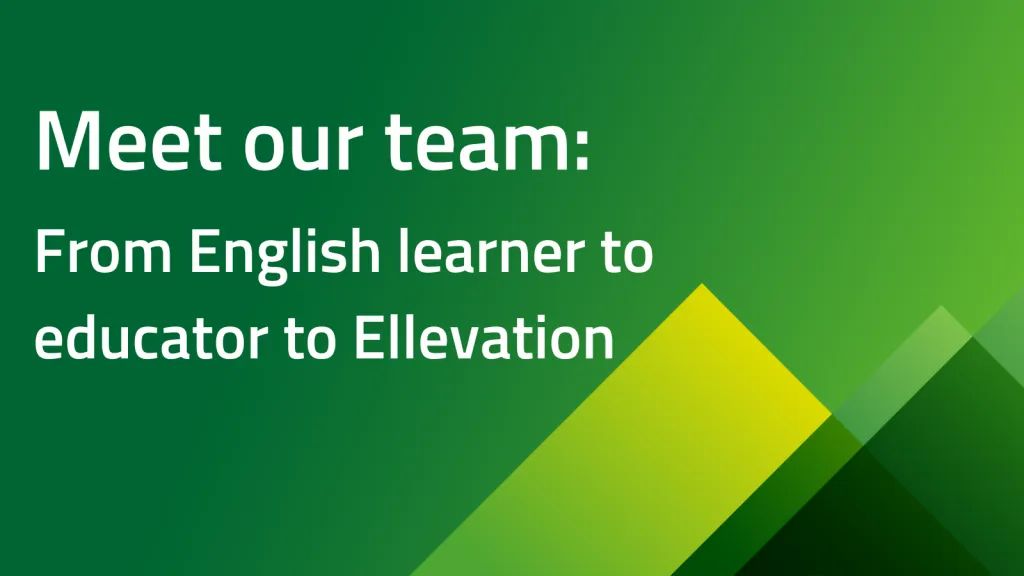

Meet our team: From English learner to educator to Ellevation
Ellevation Education is known for its support and advocacy for English learners. Our team's deep passion for this cause has driven us forward. Many of our employees were once English learners themselves and who later became educators. We had the opportunity to speak with some of them about their experiences, from being English learners to becoming educators, and how they found their way to Ellevation, where they continue to serve the nation's fastest-growing population. We interviewed Lilia Pineda-Martínez, Customer Support Manager; Yolanda Rios, Account Manager; Gabriela Volle, Partner Development Manager; Emily Ma, Training Solutions Manager; and Catalina Hart-Hidalgo, Partner Success Manager.
Can you share a specific memory from your own experience as an English learner that had a significant impact on you and influenced your decision to become an educator?
Lilia: I have several memories related to being an English learner that are deeply ingrained in my mind.
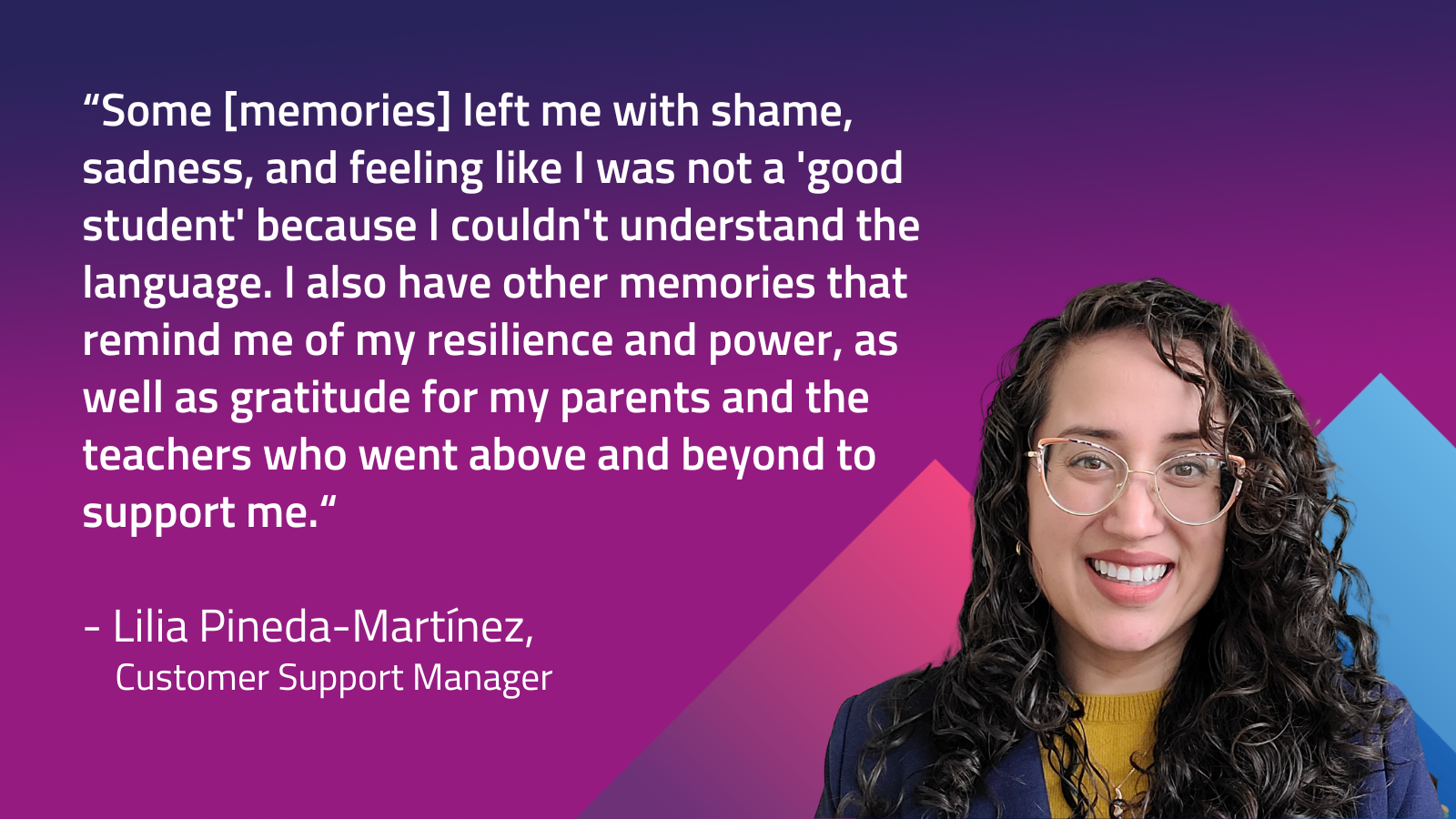 One of my memories, in particular, is that of my 4th-grade teacher, Mr. Cruz, and my mom.
One of my memories, in particular, is that of my 4th-grade teacher, Mr. Cruz, and my mom.
I moved to the US when I was 8 years old and starting 3rd grade. That entire school year, I was placed in an ESL class in which the primary language was Spanish. I didn't make much progress in my English language development, so when 4th grade rolled around, my mom was ready to advocate for my needs. She went to school and demanded that I be placed in a class whose primary language was English. Mr. Cruz was the assigned teacher. He met with my mom and tried to explain that, based on my levels, it would be difficult and a lot of work. My mom told him that she knew me best and had confidence that I would work hard and succeed. They agreed to give it a try and reassess in the middle of the year. During that first semester, Mr. Cruz would have early morning tutorials that I was required to attend, and he would also provide me with translated resources to use at home so I could keep up with the work. In class, he used different strategies to provide me with additional support, and my mom made sure I attended every morning tutorial. During our tutoring sessions, I would practice reading picture books and increasing my vocabulary. During class, we were reading chapter books in English, and I would do my best to follow along. Then I would spend my afternoons reading the Spanish translation to fill in the gaps that I had from what we covered in class. I would complete written assignments using as much English as I could.
By the end of the first semester, my mom had set up a parent-teacher meeting to reassess my progress. During this meeting, Mr. Cruz expressed how proud he was of the progress I was making and even said that I was performing at the top of my class, even with my language limitations. I remained in Mr. Cruz's class for the remainder of the year, and we continued to use the strategies until they were not needed anymore. My fourth grade is a school year that I think about often when I feel like I'm facing a difficult challenge. Mr. Cruz is also the person who perhaps influenced me the most when I decided to go into teaching because of the impact he had on my educational career. I wanted to be able to do what he did for me for other students.
Yolanda: I am the daughter of two incredibly hard working parents who came to this country to give us a better life. I was a stellar student in elementary school, but when I got to middle and high school, that's when the challenges really hit. My parents found themselves struggling to support me in school and the academic work only got more difficult. My mom always pushed the importance of having an incredible work ethic and felt that if I at least had that, I would be okay in life, so I began working 30+ hours at the age of 14.
The turning point for me came after failing my 9th grade. I started attending night/weekend school at a local community college to catch up to my peers. Stepping into the realm of higher education ignited a newfound determination.
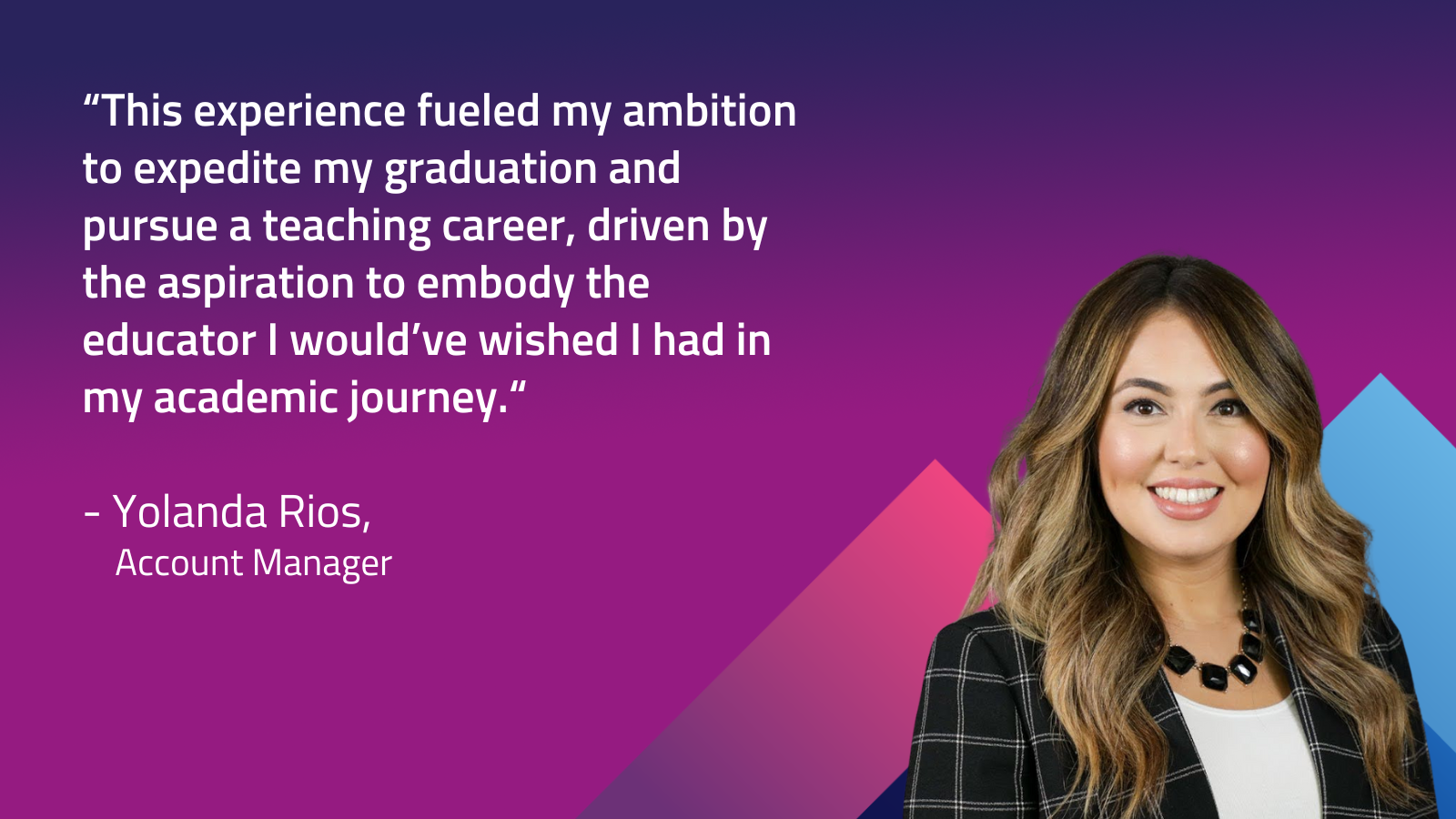
Gabriela: In 1994, my family relocated to Brazil, where Portuguese served as the primary language. Despite being fluent in Spanish and English at the time, my linguistic abilities provided limited assistance as I entered first grade. My schooling experience proved challenging, with the expectation that full immersion in Portuguese would swiftly acclimate me. Initially granted a three-month grace period by the school, I was thereafter expected to perform at the level of a fully fluent student, which proved immensely difficult and, at times, traumatic. Grasping content, context, and social norms in a language foreign to me presented formidable obstacles.
Upon our return to the US in 1997, I encountered yet another hurdle as the school district opted to hold me back a grade, citing concerns about my ability to catch up after my time abroad. However, my perseverance paid off, and by mid-year, my academic performance warranted reinstatement to my appropriate grade level. Yet, the discrimination I faced as a language learner persisted into high school. Despite spending over seven years in American schools and excelling in four AP classes, I was compelled to undergo an English Language Proficiency (ELP) test. The experience was surreal, with questions such as "What does the word orange mean?" highlighting the absurdity of the situation.
It was this pivotal moment that ignited my passion for teaching. I resolved to ensure that no child would endure the same sense of marginalization I experienced due to perceptions surrounding my multilingualism.
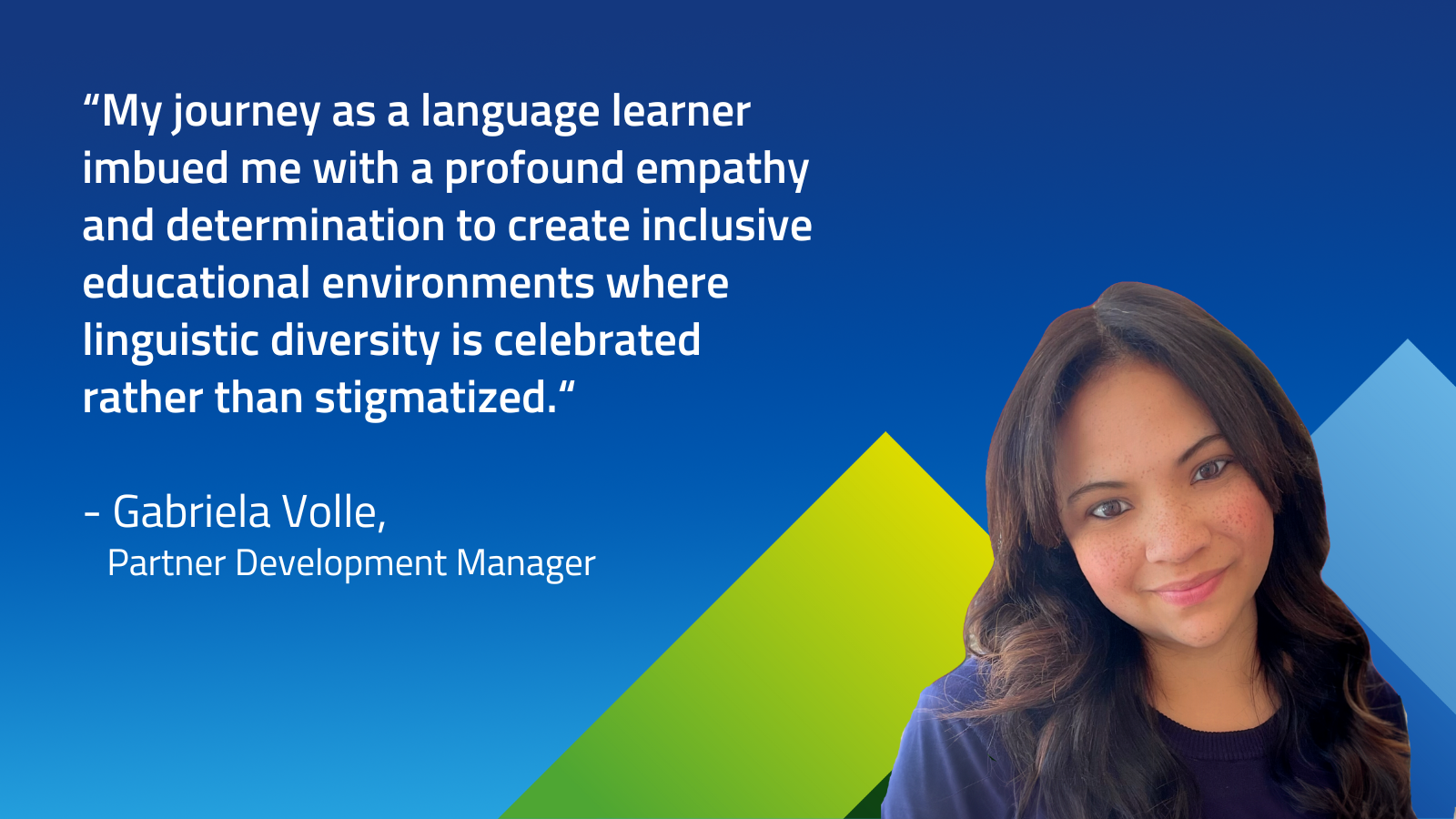
How did you incorporate your personal experiences as an English learner into your teaching approach or philosophy when working with EL students?
Emily: One of my most vivid memories is of my first day of school in America in the first grade, when I was asked to pick a new name. My teacher read a list of names from a paper and told me to stop when I heard one I liked.

They’ve already had to leave so much of themselves behind having moved to a new country that if their name is something that can remind them of a piece of their home, then they should keep it and embrace it!
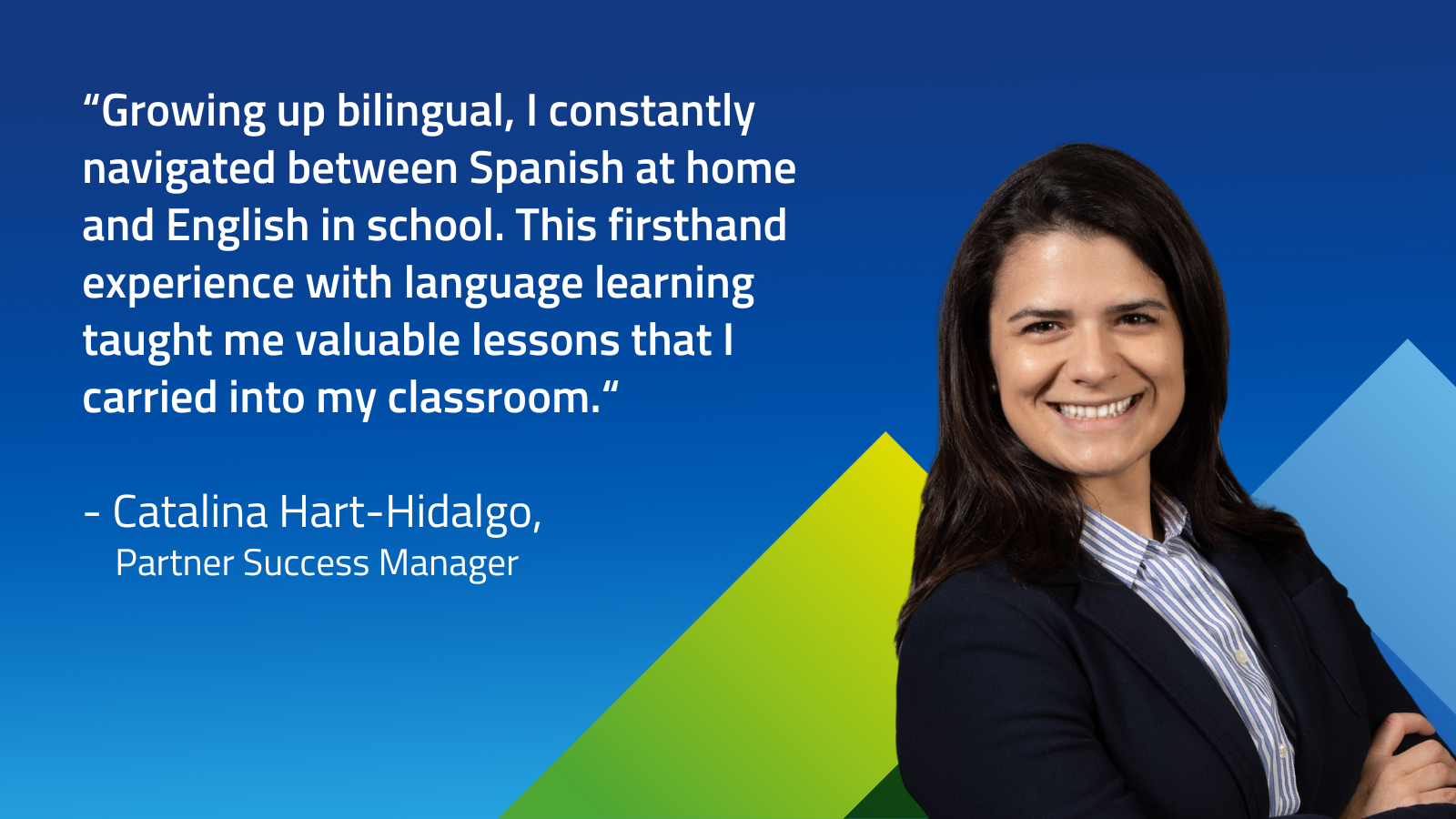
Catalina: As a child, I would mix up words and phrases. For example, saying “Don’t pise on them,” instead of “no los pises” or “don’t step on them.” Or I would say “Get down from the car,” even though in English the correct saying is “get out of the car.” However, despite these initial struggles, I thrived academically, eventually writing a thesis in Spanish. This journey taught me the importance of perseverance and celebrating 'small victories' in language acquisition.
In my classroom, I translated this experience into a focus on encouraging progress, not perfection. When students felt discouraged by mispronunciations, I'd remind them of my own journey and emphasize the importance of consistent practice.
Can you recall a particularly rewarding moment or breakthrough you witnessed in one of your students that reminded you why you chose to become an educator?
Emily: Although this story isn’t about a particular student, my last day in the classroom with my students was far more emotional than I could have expected. Even though my students kept telling me how happy they were for me and my new chapter ahead, their sweet words were accompanied by many tears. Despite the emotions of the day, it was incredibly rewarding and heartwarming to realize the impact I had made on their lives.
Catalina: Teaching science isn't just about memorizing facts. The truly rewarding moments come when students experience a breakthrough, a personal connection to the wonders of science. It reminds me why I became an educator – to ignite a passion for learning for all students.
One such student was Alan, a bright English learner in my 7th-grade class. His eyes lit up during experiments, but explaining concepts proved frustrating due to the language barrier. During our cell respiration unit, Alan struggled to grasp the complex terms.
We tackled this hurdle together. We built a visual map of a cell, using pictures and symbols to represent the process. Witnessing Alan's transformation was profound. His frustration vanished as he confidently explained cell respiration using the visuals, even using newly learned vocabulary.
This wasn't just about cell respiration; it was about empowering discovery through a universal language of visuals. This approach can help many EL students grasp scientific concepts and actively participate in class discussions. Science education, free from language barriers, ignites a passion for learning that transcends words. Stories like Alan's solidify my purpose: to create a space where all students can find their voice in the fascinating world of science.
How do you believe your personal experiences as an English learner and former educator uniquely position you to understand and address the needs of educators and English learners through your work at Ellevation Education?
Lilia: My experience as an English learner and a former educator and administrator has uniquely positioned me to better support our partners as a Partner Success Manager because I have lived and understand the impact that the work our partners do daily has on their students. I understand the challenges that English learners face because I faced them. I also know the work and dedication that educators and administrators pour into their jobs because I have also done it. The work we do at Ellevation is really transforming lives by facilitating the work that others do so English learners can reach their highest aspirations. Because I was once an English learner and a former educator, I am highly motivated to provide the best support for our partners because I truly believe in the impact that Ellevation can have on our current and future partners.
Yolanda: Reflecting on my rewarding 17-year tenure in education, encompassing roles such as Bilingual Teacher, Assistant Principal, Multilingual Director, and ultimately, Principal, it was my challenging yet gratifying position as a Principal that left an incredible mark. This pivotal role provided me with a platform to craft and implement systems tailored to resonate with EL students, mirroring my own past and families echoing my own experiences. I had an incredible focus on increasing family engagement across our community and providing guidance to parents on state/federal policy so that they could advocate for their needs.
What resonates most profoundly with me about Ellevation is its firm commitment to nurturing the success of every educator and influencing the lives of our ELs. From families and educators to campus leaders and district administrators, the holistic impact of Ellevation's mission deeply aligns with my personal vision. Leveraging the collective expertise and insights of esteemed professionals and former educators within our organization, we are united in our mission to challenge the status quo and spearhead meaningful, progressive change within the educational landscape.
When you were an educator, did you know about Ellevation? What made you want to work at Ellevation?
Gabriela: When I joined a new school district as Vice Principal in 2018, I was introduced to Ellevation, a valuable resource for tracking Multilingual Learners and facilitating the reclassification process, which is particularly important here in California. As I transitioned to the role of the district's EL Coordinator in 2021, Ellevation became an indispensable tool in my daily operations. What truly captivated me about Ellevation was the comprehensive training I attended, where I discovered many additional resources and features I hadn't previously been aware of. Witnessing the depth of knowledge possessed by the trainer left me genuinely enthusiastic about the platform's dedication to supporting English learners and the districts that Ellevation serves. It was clear to me that Ellevation was where I belonged.
The stories of Lilia, Yolanda, Gabriela, Emily, and Catalina reveal a shared journey from English learners to educators, showing their deep commitment to supporting English learners. As advocates at Ellevation, they bring firsthand insights and passion to their roles, empowering educators and fostering success for English learners nationwide.